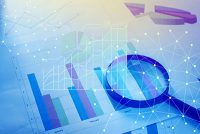Employers are increasingly turning to analytics to aid in recruiting, hiring, and more. But with the federal government eyeing “big data” as a potential area needing nondiscrimination enforcement, experts say HR must ask the right questions before buying any products or services.
 |
A recent study from consulting firm Deloitte found that one-third of employers are using some form of data to make HR decisions. And with its ability to predict employee behavior, more likely will join, the firm concluded in its 2017 Deloitte Global Human Capital Trends.
But the U.S. Equal Employment Opportunity Commission (EEOC) has warned employers that they must be responsible consumers. “This is a tool that can … either help advance equal employment opportunity or it can be another thing that causes a lot of litigation,” Commissioner Charlotte A. Burrows said at an October 2016 agency meeting.
Despite the risks, “big data analytics work and they’re not going away,” Marko J. Mrkonich, a shareholder at Littler Mendelson, told the commissioners at that meeting. Kathleen K. Lundquist, president and CEO of APTMetrics, Inc., agreed. “There really is no doubt that big data is the future of HR,” she told the group. “But it presents a future that’s both promising and scary.”
EEOC Is Paying Attention
EEOC’s meeting to examine the use of big data in employment took place before President Donald Trump took office, but that doesn’t mean the commission will now look the other way on this issue.
Trump’s acting EEOC Chair Victoria A. Lipnic helped organize that meeting and said she believes the EEOC needs to understand how big data is being used in the workplace. It will be a challenge, she said, “but as I see it, that is the core of our responsibilities; ensuring that our understanding of today’s workplaces and that our interpretation and administration of the law are as current and fully informed as possible.”
The analytics discussion generally involves two types of products and services: (1) off-the-shelf bundles of information mined from social media, consumer data, etc.; and (2) experts that analyze an employer’s workforce. The first could, for example, allow an employer to use job applicants’ zip codes to predict the length of time they would stay at the company. The second could, for example, track employees’ movement and conclude that workers are more productive in the afternoon if they eat lunch in groups.
At EEOC’s meeting, commissioners asked data experts how employers can ensure that they’re using data to reduce bias and discrimination—not increase it. (For example, the zip code algorithm discussed above could have a disparate impact based on race.) Aside from making sure that products have safeguards, the experts said that data is supposed to be used in conjunction with human decision makers; it should be used to help recruiters make better-informed decisions.
The EEOC asked what its next steps should be with respect to HR and big data and received two suggestions: issue guidelines for testing products and develop best practices for implementation.
In tomorrow’s Advisor, we’ll go over the key risks and the questions HR must know to ask regarding big data issues.
